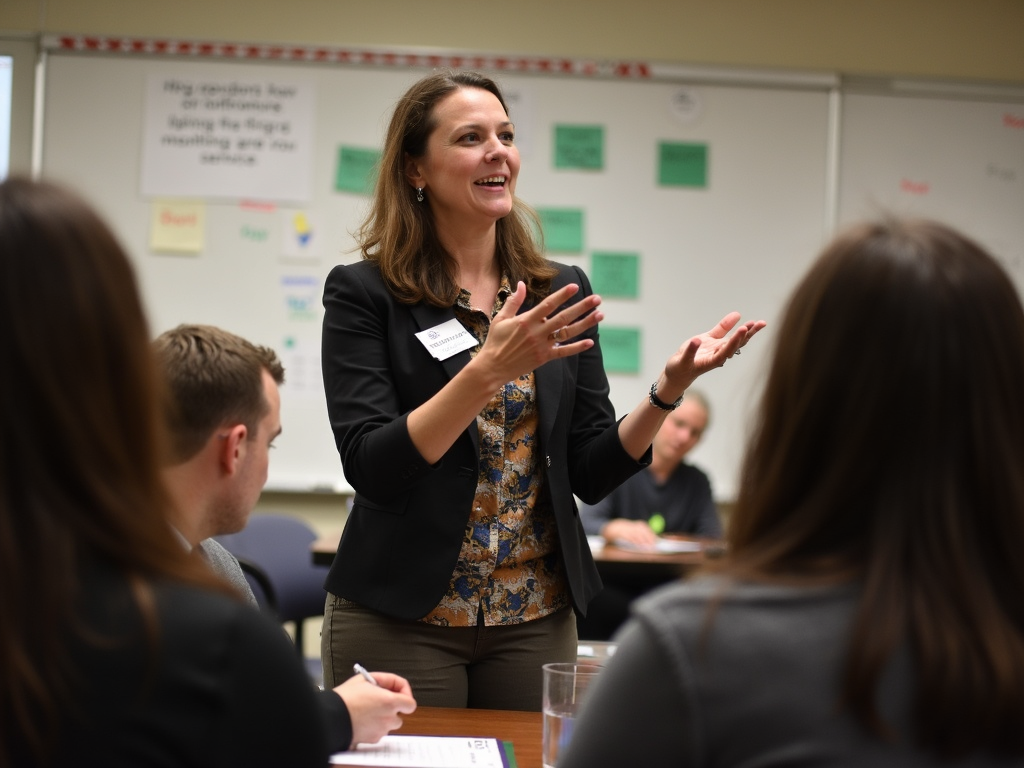Empowering Change: The Essential Guide to Volunteer Training for Advocacy Work
By , July 1, 2025
Advocacy work is a powerful way to make a difference in the world. Whether it's fighting for environmental protection, human rights, or social justice, advocates play a crucial role in shaping public policy and opinion. However, effective advocacy requires more than just passion; it demands specific skills and knowledge. That's where volunteer training comes in. Proper training equips volunteers with the tools they need to be successful advocates, ensuring their efforts have a meaningful impact. In this article, we'll explore the importance of volunteer training for advocacy work, the key skills volunteers need, and the best methods for training them.

The Importance of Volunteer Training for Advocacy Work
Training is essential for advocacy volunteers because it prepares them to navigate the complexities of influencing public opinion and policy. Without proper training, even the most passionate volunteers may struggle to communicate their message effectively or understand the intricacies of the issues they are advocating for. Well-trained volunteers are more likely to succeed in their efforts, which benefits both the organizations they represent and the causes they support.
For example, a study by the National Council of Nonprofits found that organizations with structured volunteer training programs reported a 30% higher success rate in achieving their advocacy goals compared to those without such programs. This statistic underscores the value of investing in volunteer training. Additionally, trained volunteers often feel more confident and motivated, leading to higher retention rates and a more dedicated volunteer base.
Key Skills for Advocacy Volunteers
To be effective advocates, volunteers need a range of skills. Here are some of the most important:
-
Communication: Advocacy is all about conveying messages persuasively. Volunteers must be able to articulate their cause clearly and compellingly, whether they're speaking to a small group or writing a press release. Active listening is also crucial, as it helps advocates understand the concerns of others and tailor their messages accordingly.
-
Research: Advocacy often involves presenting facts and data to support a position. Volunteers need to know how to gather reliable information, analyze it, and use it to strengthen their arguments. Online databases, academic journals, and government reports are valuable resources for this purpose.
-
Networking: Building relationships with stakeholders, such as policymakers, community leaders, and other advocates, is essential for successful advocacy. Volunteers should learn how to network effectively, including how to approach potential allies and maintain professional relationships.
-
Campaign Management: Planning and executing an advocacy campaign requires organizational skills. Volunteers need to understand how to set goals, develop strategies, and measure success. This might involve creating timelines, coordinating events, and managing resources.
-
Public Speaking: Many advocacy efforts involve speaking to groups, whether at rallies, community meetings, or legislative hearings. Volunteers should practice speaking confidently and clearly, using visual aids when appropriate to enhance their presentations.

Effective Training Methods for Advocacy Volunteers
There are several methods for training advocacy volunteers, each with its own advantages. Organizations can choose the approach that best fits their needs and resources.
-
Workshops and Seminars: These hands-on learning experiences allow volunteers to practice skills in a supportive environment. Workshops can cover topics like public speaking, media relations, or grassroots organizing. They often include role-playing exercises, where volunteers can simulate real-world advocacy scenarios.
-
Online Courses: For volunteers who can't attend in-person training, online courses offer a flexible alternative. These courses can include video lectures, quizzes, and discussion forums. Many reputable organizations, such as Coursera and edX, offer courses on advocacy and related topics.
-
Mentorship Programs: Pairing new volunteers with experienced advocates can be an effective way to transfer knowledge and skills. Mentors can provide guidance, answer questions, and share their own experiences. This one-on-one approach allows for personalized learning and can be particularly helpful for volunteers who are new to advocacy.
-
Role-Playing Exercises: These exercises help volunteers practice their skills in a low-stakes setting. For example, volunteers might role-play a meeting with a legislator or a media interview. This type of training can build confidence and help volunteers refine their techniques.
-
Case Studies: Analyzing real-world advocacy campaigns, both successful and unsuccessful, can provide valuable insights. Volunteers can learn from the strategies and tactics used in these campaigns and apply those lessons to their own work.

Case Study: Training Volunteers for a Climate Change Campaign
To illustrate the impact of volunteer training, let's look at a real-world example: a climate change advocacy campaign led by the environmental organization Green Future.
Campaign Overview: Green Future launched a campaign to advocate for stronger renewable energy policies at the state level. The campaign aimed to gather public support, influence policymakers, and ultimately pass legislation to increase the state's renewable energy targets.
Training Program: Green Future developed a comprehensive training program for its volunteers. The program included:
- A two-day workshop covering the basics of advocacy, including communication strategies, research techniques, and campaign planning.
- Online modules on climate science and renewable energy policies, ensuring volunteers had a solid understanding of the issues.
- Mentorship from experienced advocates who provided ongoing support and guidance.
- Role-playing exercises where volunteers practiced speaking to policymakers and the media.
Impact: The training program had a significant impact on the campaign's success. Volunteers reported feeling more confident and prepared, which translated into more effective advocacy efforts. The campaign ultimately succeeded in passing the desired legislation, with volunteers playing a key role in mobilizing public support and influencing policymakers.
Lessons Learned: Green Future's experience highlights the importance of a well-rounded training program that combines theoretical knowledge with practical skills. The organization also found that ongoing support, such as mentorship, was crucial for keeping volunteers engaged and motivated.

Conclusion
Volunteer training is a critical component of successful advocacy work. By equipping volunteers with the necessary skills and knowledge, organizations can amplify their impact and drive meaningful change. Whether through workshops, online courses, or mentorship programs, investing in volunteer training is an investment in the future of advocacy. If you're passionate about a cause and want to make a difference, consider seeking out training opportunities to enhance your advocacy skills. Together, we can create a better world.